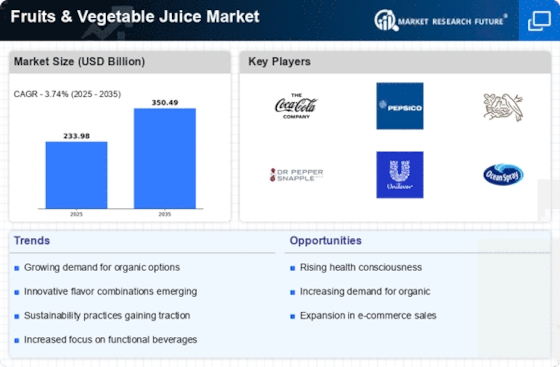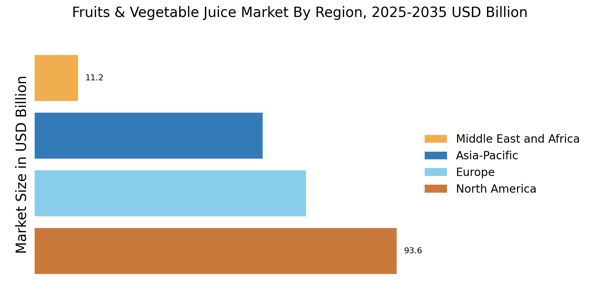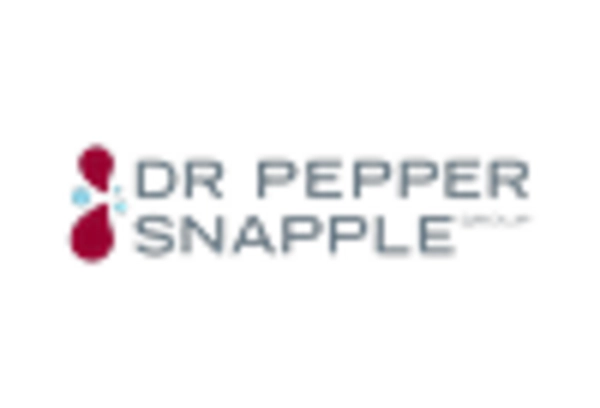E-commerce Growth
The rise of e-commerce platforms appears to be transforming the Fruits & Vegetable Juice Market. With more consumers opting to shop online for groceries, the availability of juices through digital channels is expanding. Market data suggests that online sales of beverages, including juices, have experienced significant growth, driven by convenience and the ability to access a wider variety of products. This trend may encourage traditional retailers to enhance their online presence, thereby increasing competition and providing consumers with more options in the marketplace.
Diverse Flavor Profiles
The exploration of diverse flavor profiles in the Fruits & Vegetable Juice Market appears to be a compelling driver of growth. Consumers are increasingly adventurous in their taste preferences, seeking unique combinations that blend various fruits and vegetables. This trend is supported by market data indicating a rise in the popularity of exotic flavors and blends, such as turmeric-infused juices or those incorporating superfoods. As manufacturers experiment with innovative flavor combinations, they may attract a broader audience, thereby expanding their market share and enhancing consumer engagement.
Health Benefits Awareness
The increasing awareness of health benefits associated with fruits and vegetable juices appears to be a primary driver in the Fruits & Vegetable Juice Market. Consumers are increasingly seeking beverages that offer nutritional advantages, such as vitamins, minerals, and antioxidants. This trend is reflected in market data, which indicates that the demand for organic and natural juices has surged, with a notable increase in sales of cold-pressed juices. As health-conscious consumers prioritize their well-being, the industry is likely to see a continued rise in the popularity of functional juices that promote immunity and overall health.
Sustainability Initiatives
The growing emphasis on sustainability within the Fruits & Vegetable Juice Market is becoming increasingly apparent. Consumers are more inclined to support brands that prioritize eco-friendly practices, such as sustainable sourcing and environmentally friendly packaging. Market data indicates that companies adopting these initiatives are witnessing a positive response from consumers, leading to increased brand loyalty. As sustainability becomes a key purchasing factor, the industry may see a shift towards more responsible production methods, which could reshape the competitive landscape and influence consumer choices.
Convenience and On-the-Go Consumption
The fast-paced lifestyle of modern consumers seems to be influencing the Fruits & Vegetable Juice Market significantly. With an increasing number of individuals seeking convenient and portable beverage options, ready-to-drink juices are gaining traction. Market data suggests that single-serve packaging is becoming more prevalent, catering to busy consumers who prefer quick and easy access to nutritious drinks. This shift towards on-the-go consumption is likely to drive innovation in packaging and product offerings, as manufacturers strive to meet the demands of a time-strapped population.

















